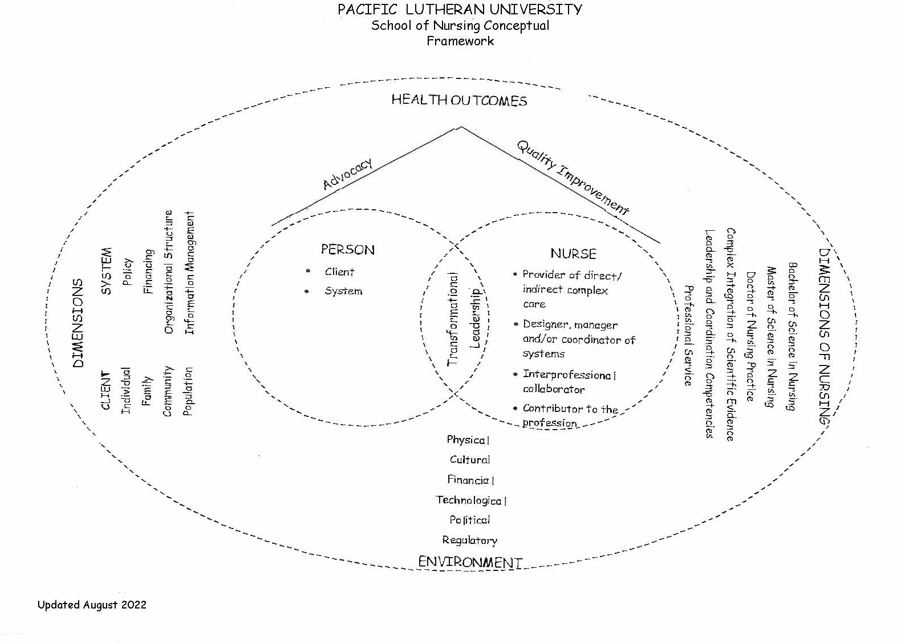At the baccalaureate level, the professional relationship between person and nurse is the health interaction. The nurse interacts as a facilitator or collaborative leader with person in four professional roles: 1) Provider of direct/indirect care; 2) Designer, manager, and coordinator of safe, quality care; 3) Interprofessional collaborator; and 4) Professional. The health interaction is nested in the context of informed caring and defined by an ethical decision-making framework that respects diverse values and beliefs and incorporates moral concepts, advocacy, professional ethics and law. Nursing uses a facilitative or collaborative leadership process to assist persons in the promotion and maintenance of health behaviors, health restoration, and the prevention and management of disease. Leadership evolves from the integration of educational preparation and professional experience and is enacted by a willingness to identify and act on complex problems in an ethical, person-centered manner. Nursing knowledge and practice are derived from empirical, personal, aesthetic and ethical ways of knowing. Nursing is built on a strong liberal arts foundation, professional values, clinical competency, evidence- based practice, information management, leadership, and professional service. These dimensions are brought by the nurse into any situation. The goal of the health interaction between nurse and person is to support the person’s movement toward optimum health, quality of life, well-being, and/or quality of death.
At the graduate level the nurse builds on the baccalaureate foundation by using higher level thinking and conceptualization skills to lead and implement systems change. Graduate-prepared nurses are prepared to lead change by using nursing and related sciences, research evidence, interprofessional collaboration, and informatics/healthcare technologies to design effective person-centered care. Graduate-prepared nurses use integration of scientific evidence in more complex ways to optimize health among persons, whether person represents an individual, family, community, population, or system (which includes the complex dimensions of policy, finance, organizational structure, and information management). The professional relationship between nurse and person is transformational leadership as the nurse interacts with person in four advanced professional roles: 1) Provider of direct/indirect complex care; 2) Designer, manager and/or coordinator of systems; 3) Interprofessional collaborator, and 4) Contributor to the profession. Transformational leadership involves advocating for, implementing, and evaluating change toward the goal of quality improvement by creating and promoting an environment in which person is challenged and supported in envisioning possibilities and transforming shared vision into reality. Through transformational leadership, the nurse values the contribution of each person to the delivery of care, motivates individual and system change by exemplifying behaviors which influence positive outcomes and develop intrinsic quality improvement. The nurse also contributes to a culture of advocacy and safety by establishing an environment of open communication.



